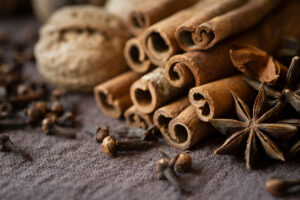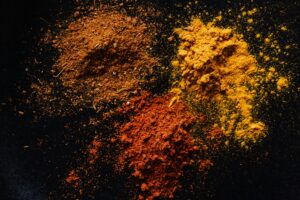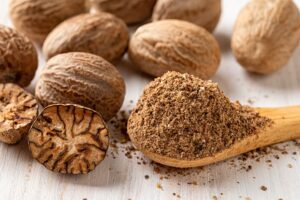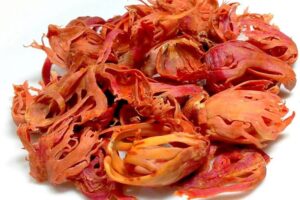Mace Trade: Kerala's Scarlet Spice
Kerala, celebrated for its spice wealth, is a key player in the production and export of mace, the delicate and aromatic crimson spice derived from the outer coating of the nutmeg seed. Revered for its vibrant color, warm flavor, and medicinal properties, mace holds a distinctive place in Kerala’s spice trade, contributing to the state’s rich agricultural heritage and economic strength.
The Kerala Advantage
Kerala’s tropical climate and fertile soils, particularly in regions like the Western Ghats, provide the perfect environment for nutmeg trees to thrive, producing high-quality mace. The state’s mace is known for its intense aroma, rich essential oil content, and vivid hue, making it a preferred choice for culinary, medicinal, and cosmetic applications.
Farmers in Kerala use time-honored, sustainable farming methods to cultivate nutmeg and mace, ensuring the highest quality product while preserving the natural ecosystem.
The Historical Significance of Mace
Mace has been a prized spice in Kerala for centuries, with historical records indicating its use in trade with Middle Eastern and European merchants. The spice’s aromatic and preservative qualities made it highly valuable in ancient kitchens and apothecaries, reinforcing Kerala’s status as a cornerstone of the global spice trade.
Global Demand and Export
Mace is a versatile spice with applications in flavoring foods, beverages, baked goods, and sauces. It is also used in pharmaceuticals, perfumery, and traditional medicine.
Kerala’s mace is exported to international markets, including Europe, North America, the Middle East, and Southeast Asia. The growing preference for natural, organic spices has boosted the demand for Kerala’s sustainably farmed mace, opening up new trade opportunities.
Health and Economic Benefits
Mace is known for its numerous health benefits, including anti-inflammatory, digestive, and antioxidant properties. It is used to alleviate indigestion, improve appetite, and enhance respiratory health. Mace is also valued for its calming effects, often used in aromatherapy and traditional medicine.
From an economic perspective, mace cultivation provides stable income for Kerala’s farmers, supporting rural communities and fostering economic growth. The high value of mace ensures profitable returns for producers and exporters alike.
Sustainable and Ethical Practices
Kerala’s farmers are increasingly embracing organic and eco-friendly farming practices to cultivate nutmeg and mace. These practices include natural pest control, organic fertilizers, and intercropping, promoting sustainability and long-term agricultural health.
Fair trade initiatives further enhance Kerala’s reputation as a producer of ethically sourced, high-quality mace, ensuring fair wages and promoting equitable trade relationships.
Trade Opportunities
Mace presents exciting opportunities for importers and exporters seeking to expand their spice offerings. Kerala’s established spice trade networks and government support create a favorable environment for businesses to source premium mace directly from local producers.
With the rising global demand for unique, high-value spices, Kerala’s mace trade holds significant potential for growth and profitability.
Conclusion
Kerala’s mace, with its rich flavor, medicinal value, and cultural significance, continues to thrive in the international spice market. By investing in this scarlet spice, traders can unlock new markets while supporting Kerala’s sustainable agricultural practices. As demand for organic, high-quality spices rises, Kerala’s mace trade stands poised for continued success and expansion.




